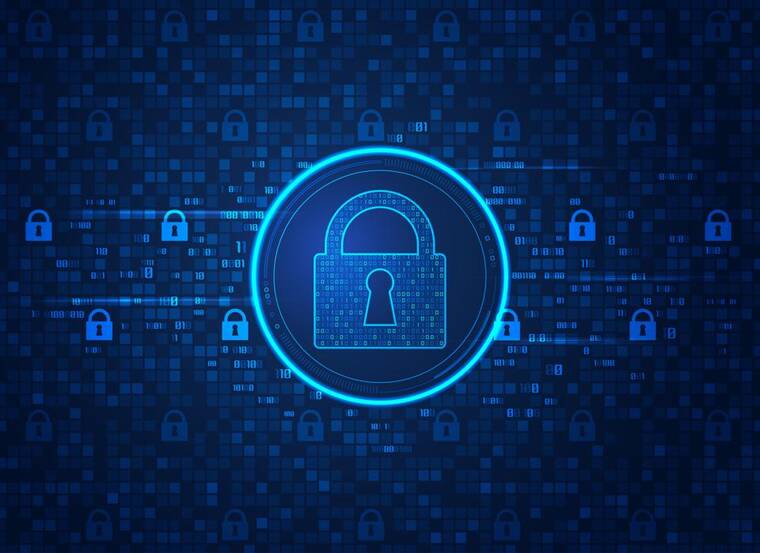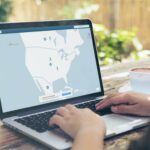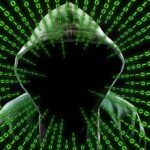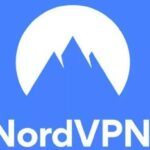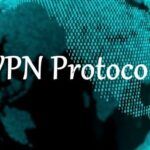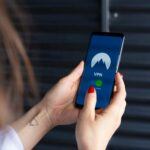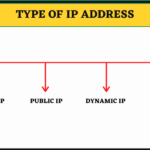Governments, advertisers, and even hackers may try to monitor your browsing history. Without a VPN, your internet service provider (ISP) could log your online activity and sell it to the highest bidder. So do you need a VPN?
Why do you need a VPN service?
Definitely need a VPN; it's one of the easiest and most effective ways to protect yourself online.What is a VPN, how does it work?
A VPN is an essential tool for online privacy protection. It encrypts your data and redirects it through a secure VPN server. You can browse and act online as usual, but outside observers (such as your internet service provider) won't be able to see what you're doing or track your location. A VPN can also protect you on unsecured public Wi-Fi hotspots that are often blocked by hackers.
With data privacy increasingly under threat from government authorities, tech giants, and hackers, this is the perfect time to use a VPN on your home network.
What happens if you don't use a VPN?
First, privacy and security are being risked, hacking is possible, online activity may be monitored, and certain services may be denied. A VPN enhances digital security and provides an encryption shield.
How VPNs Protect Privacy
A VPN encrypts the entire connection, protecting it from snoopers, third-party advertisers, and cybercriminals.
When the VPN is on, browsing data is encrypted, sent to a secure VPN server, decrypted, and passed on to its original destination. The same process happens when information is sent back to you. Even if hackers intercept the data along the way, all they see is a bunch of unbreakable code.
Even ISPs can't monitor you, so without worrying about your browsing habits being recorded and sold to advertisers, it's a simple and effective way to maintain privacy.
Why use a home VPN?
Using a VPN at home is as important as installing antivirus software. The main purpose of VPNs is security and privacy, but in reality, they are very useful:
- Protect yourself from cybercrime
By 2021, more than half of your most valuable possessions may exist in digital form. For cybercriminals, your identity and financial details are gold dust. One of the best ways to protect yourself is to use a VPN.
When you use a VPN, it is more difficult for attackers to access your private information. even if they hack the router orMITMTargeted by an attack, they also cannot decrypt your data. - Overcome firewalls and network restrictions
VPNs can help you bypass government and university-imposedfirewall. In order to limit your online activities, these organizations need to view the above activities in real time. Using a VPN can mask your activity and allow you to slip through the firewall.
Some VPNs suffer from dropped connections, which may temporarily expose your activity. That's why NordVPN comes with a built-in Kill Switch. This feature automatically cuts off your internet connection if your data is not fully protected and will only reconnect when your VPN is active again. - maintain personal privacy
Everyone has a right to privacy, whether in the real world or online. But there's no shortage of people and companies that want to know about your browsing activity. In fact, many ISPs are legally permitted to sell your data to companies, advertisers, research institutes, and government agencies.
A VPN puts you back in control of your internet privacy. When you turn it on, not even your ISP can track you. If you're already asking yourself "Should I get a VPN?" the answer is probably yes. Especially if you're tired of intrusive snoopers, data sales, and constant online advertising. - VPNs can make digital sharing more secure
When you share a file with someone, you don't want strangers monitoring the transfer. A poor quality home VPN won't provide effective P2P file sharing, but a premium service like NordVPN can. Thanks to a strong encryption protocol, your uploads and downloads will be kept safe from prying eyes. - protective equipment
A VPN can protect your cameras and other devices (like IoT projects). For a particularly ruthless cybercriminal, an unprotected camera is a treasure trove. Other devices such as IoT baby monitors, doorbells or appliances may also be vulnerable if you browse unprotected. Set up a VPN directly on your router to protect every device in your home.
For the reasons above, using a VPN at home and elsewhere is highly recommended. Enhance online security and protect your data with just a few clicks.
Stay safe with the world's leading VPN
Do you need a VPN for your phone too?
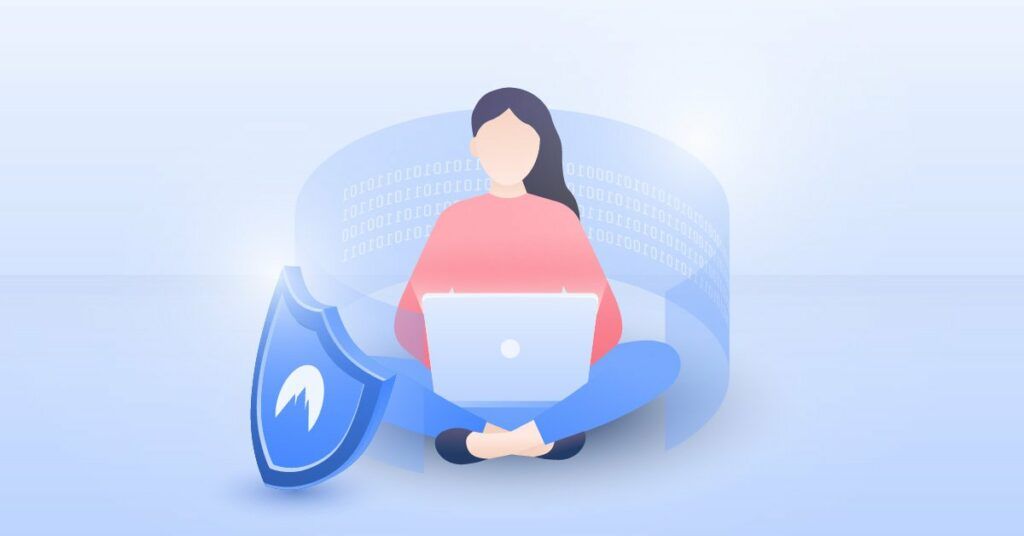
Phones are just as attractive to hackers as computers, and are sometimes more likely to be the target of Wi-Fi snooping. And, if you're using the Wi-Fi auto-connect feature on your iPhone, take extra care when you're out and about.
Public Wi-Fi is a hunting ground for hackers because it is often insecure and leaves user information vulnerable. If mobile coverage is lost, mobile devices may automatically connect to the nearest public Wi-Fi, putting them at risk. This is NordVPN Reasons to provide easy-to-use mobile apps for various operating systems.
Does my business need a VPN?
Criminals often steal valuable data by targeting the devices of employees within a company. Whether running a business or working for a large corporation, a VPN is invaluable.
The threat is only getting worse. With the prevalence of remote work, cybercriminals are taking advantage of unsecured home routers and devices. If you are one of many people who use one device for both leisure and work activities, a VPN is a great way to add an extra layer of security.
NordVPN hasNordLayer — Great solution for secure B2B events. NordLayer provides top-notch security for online traffic, making your business even more secure.
VPN Privacy: What Does a VPN Hide?
Your Internet Activity - Maintaining Internet Freedom
Without a VPN, everything you do online can be monitored and tracked by intrusive snoopers like your ISP and other third parties. Your sensitive information may then be sold to third parties such as advertisers, authorities and government agencies, or even used to launch malicious actions against you.
Your IP address and virtual location
Without a VPN, your IP address is exposed. Your IP address and that of all the devices connected to your home Wi-Fi can be stolen by cybercriminals to track your location, down to the street level if they so choose.
A VPN changes your IP by routing your traffic through a remote server. So no one can see your virtual location and your online privacy is protected. For example, if you browse in the UK with a French IP, everyone will think that you are browsing from France.
your internet-connected device
If you don't have a VPN connection on your home router, hackers can see all the devices connected to your local network and the traffic from those devices. Cybercriminals can monitor that traffic, blackmail you, steal your files, and cause a lot of avoidable mess. Therefore, your home network is more likely to be attacked by criminals.
How can a VPN help prevent identity theft?
While a VPN connection does not guarantee that 100% will prevent identity theft, it can help reduce its likelihood. Identity thieves often use personal data to impersonate their targets. For example, they can intercept your web traffic, inspect your online behavior and steal your data, which can later be used for identity theft. Therefore, a VPN can partially prevent such theft.
How to choose a VPN
In this day and age, not using a VPN is risky, so consider using a VPN to protect your security and your family's online privacy.
Number of servers
Make sure the VPN service haslots of servers, because that means there are more virtual locations to choose from. Also, it will reduce the possibility of server overload as users always have more options to route internet traffic. Many servers will guarantee better speed and user experience.
OS support
Check which operating systems are supported by the VPN service and whether this list satisfies your needs. Also, make sure that the VPN service is available for mobile devices. These devices are constantly exposed to various threats, so it is important to protect them.
Download for desktop, iOS and AndroidNordVPN app.It has a one-touch connect button to secure your device in seconds.
How many devices can be connected at one time?
Another important aspect to consider is how many devices an account can protect. For example, you can use NordVPN on up to six devices simultaneously on each of the major platforms.
Additional features
Be aware of all the extras the VPN provider offers. Make sure you get a good package for your money.NordVPN has many useful features,include:
- Kill Switch, if the VPN service stops working, it cuts off the internet connection and protects the traffic from accidental exposure.
- Threat Protection, checks newly downloaded files for malware and blocks them, and hides malicious ads.
- Obfuscate the server, to hide the fact that you are using a VPN.
- multi-factor authentication, which provides additional protection for your account.
transparency
Always use a VPN from a transparent and reliable provider. Free VPNs are strongly discouraged as most monetize their activities by collecting your data and using it for marketing purposes or selling it to third parties. Some of them are full of ads or have poor functionality and infrastructure.
speed
Make sure the VPN service doesn't slow down the connection significantly. NordVPN hasNordLynxprotocol, making it the fastest VPN available, guaranteeing a great VPN experience.
How to set up NordVPN at home
If you're ready to take internet privacy to the next level, there are three easy steps to get started:
- set upNordVPN account.
- for each of your devicesDownload the app.NordVPN works with all major operating systems, even Android TV. Plus, it's available as an extension for Chrome and Firefox browsers.
- Open the app, log in, and click Quick Connect.
That's it! You can even set NordVPN to start and connect automatically when you surf the web. Protecting online privacy is more important than ever - and it's never been easier.
